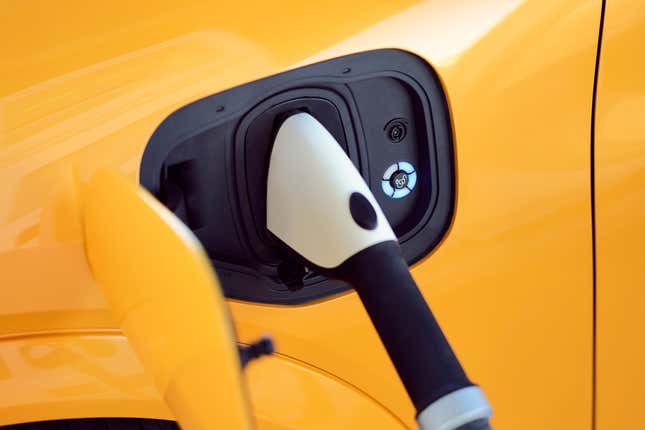
One of the barriers to EVs right now is the hassle of charging. In fact, one fifth of all EV buyers go back to gas vehicles, mainly because of charging issues.But charging infrastructure and technology keep getting better.
According to Business Insider, researchers at Cornell University, led by Associate Professor of Electrical and Computer Engineering Khurram Afridi, have developed technology that would allow vehicles to be charged on the road while in motion. It would essentially turn U.S. roadways into wireless chargers.
Afrindi says he has been working on the tech for the last seven years. Here’s how it would work, according to Afrindi via Insider:
“Highways would have a charging lane, sort of like a high occupancy lane,” Afridi told Insider. “If you were running out of battery you would move into the charging lane. It would be able to identify which car went into the lane and it would later send you a bill.”
[...]
The science behind Afridi’s project goes back over 100 years to Nikola Tesla, the inventor who used alternating electric fields to power lights without plugging them in. Afridi’s technology would embed special metal plates in the road that are connected to a powerline and a high frequency inverter. The plates will create alternating electric fields that attract and repel a pair of matching plates attached to the bottom of the EV.No need to worry about stopping to charge unless you’re down for the night. They have run into a problem, however. They can’t seem to find the parts that can handle the high levels of power needed to charge vehicles enough while they are in motion. It would have to be a material that’s not only weatherproof but able to withstand high voltage and heat from the passing vehicles.
It may be a while before we see anything like this on the roads, if we ever do. If it were deployed broadly, it would require major investment in roads across the country. Potentially billions, if not trillions of dollars. But, it would also fundamentally change the equation for EVs, too. The research team is set to partner with Toyota on using the system to charge electric forklifts. .